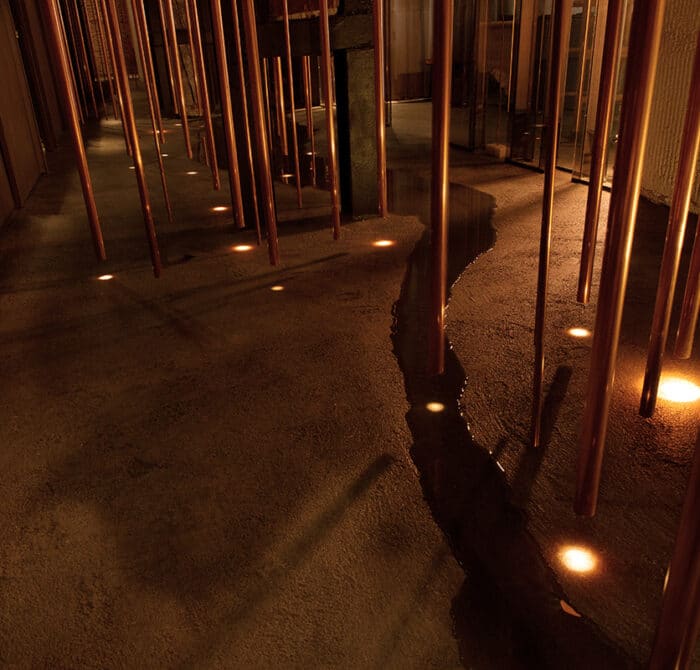Vital Essence: Unraveling the Deep Meaning of Water

The value and significance of water to different civilizations and cultures have had a vital influence on the health, economy, traditions, or spirituality of peoples. Water is an essential element for life, with even a sacred connotation. However, its symbolism can vary, and today at Halmma, we aim to decipher its profound meaning for various cultures and from a spiritual perspective.
Unveiling Mysteries: What Does Water Symbolize in Different Cultures?
What does water symbolize in different cultures? In many cultures, the meaning of water acquires a sacred dimension, as it is the source of life for most societies. However, in major religions, water can be seen in different ways…
- In ancient Egypt, water was closely tied to the idea of rejuvenation.
- The Greeks attributed a dual meaning to water: on one hand, it represented life, and on the other, death.
- In major Eastern religions, water is the origin of everything that exists.
- For some African and Asian peoples, water is part of their deities, and thus, springs are even considered sacred and revered.
In Afro-religions, one of the most well-known goddesses is Lemanja or Yemayá, the goddess of the sea. She is considered the first deity of the universe and, therefore, the mother of all living beings. She rules over the seven seas, embodied in saltwater, and represents the origin of life as well as fertility, motherhood, and purification. She protects her children through water, rain, or moisture, making her the queen and goddess of waters. Curiously, her counterpart in Catholicism is the Virgin of Regla.
Indeed, for many religions, water is perceived as a god or goddess, a divinity that symbolizes purification, renewal, liberation, fertility, and abundance. Thus, it is part of ancestral rites:
- In Catholicism, water plays a central role in the sacrament of baptism.
- In Islam, water takes on a purifying function in the ablutions before daily prayers.
- In Judaism, water is part of the ritual cleansing to restore or maintain a state of purity.
- In Hinduism, water also carries a meaning of spiritual purification.
- Buddhists use water as a central element in funerals.
- For many indigenous peoples, water is a divine gift and the abode of spirits.
In Islam, water falls from the sky as rain, symbolizing the divine. In some of our experiences at Halmma, specifically in the Rain Experiences, this meaning of water is part of our relaxing and purifying ritual.
In Christianity, water is seen as a gift from God, present throughout creation as an element of life.
The significance of water in different religions and cultures has always been situated in the dichotomy between life and death, representing the boundary between these two worlds.
Throughout history, different civilizations have structured themselves around water because it is essential for life. Thus, prayers or rituals are performed to attract water:
- After long periods of drought, Catholicism includes prayers and supplications or holds processions.
- In ancient Egypt, rain dances were performed, which are also found in indigenous American religions.
- In Hinduism, a ritual is conducted in honor of the god Indra.
- In Islam, there is a prayer for rain performed early in the morning outside the mosque.
Therefore, water is an element present in most religions as a sacred gift. Its power leads humans to symbolize it as a promise of life but also as a threat of death when it is absent.
Exploring the Spirituality of Water
As we have seen, water is the primordial source of life, but it not only sustains our bodies but also nourishes our souls. Throughout history, water has been a powerful symbol of purification, renewal, and transformation in various cultures and spiritual traditions. By delving into the spirituality of water, we find a reflection of our own nature, a deep connection with the universe, and a path to meditation and inner peace.
Water, in its constant flow, teaches us the importance of adaptability and fluidity in our lives. Just as water molds itself to any container, we too can learn to adapt to changing circumstances, to flow with the currents of life rather than resist them. This principle becomes a powerful tool during meditation with the element of water, where we visualize water as a means to dissolve tensions and worries, allowing our minds to find calm.
When meditating with the element of water, we can visualize a river, a lake, or an ocean. We close our eyes and imagine ourselves facing a serene body of water. We feel how each breath synchronizes with the gentle movement of the water, each inhalation brings peace and each exhalation releases tension. This helps calm the mind and connect with nature, reminding us that we are part of it.
Water also symbolizes cleansing and purification. In many traditions, as mentioned, the act of immersing oneself in water, whether in a sacred river or a simple shower, is considered a ritual of spiritual purification. This act symbolizes the washing away of impurities from both body and soul. It is an act of renewal and purification of our lives, leaving behind what stresses us and making room for new experiences.
The element of water in spirituality invites us to connect with the essence of life. It reminds us of the importance of flowing and offers, through meditation, a path to our inner peace.